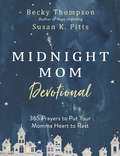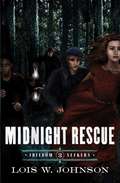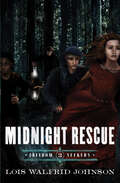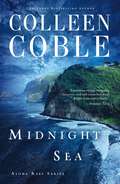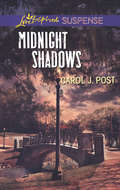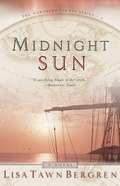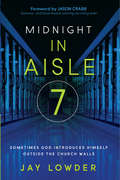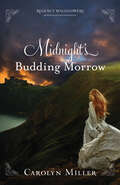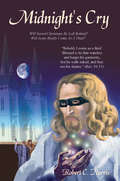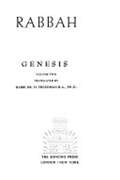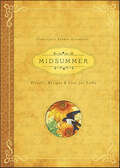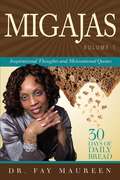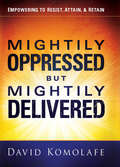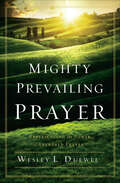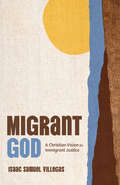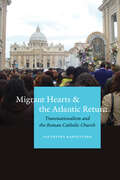- Table View
- List View
Midnight Mom Devotional: 365 Prayers to Put Your Momma Heart to Rest
by Becky Thompson Susan PittsA yearlong book of prayers to bring nightly hope and a sense of connection to mothers who feel alone, from the mother-daughter team behind the Midnight Mom Devotional Facebook page. There is something about a quiet house in the midnight hours that causes stress and anxious thoughts that have been ignored throughout the day to rise to the surface of a mother’s heart. When the world goes still around you, it’s good to know you’re not alone; there are so many other mommas just like you and a God who wants to meet you in the quiet. What began as a small online prayer ministry to encourage moms in the middle of the night quickly grew into a worldwide prayer movement known as the Midnight Mom Devotional. Now this encouraging book of prayers connects you with a community of moms to strengthen your heart and give you support when you need it most. In the stillness and the night, take heart in knowing that women across the world are joining you in prayer and that God is listening and loving you right where you are.
Midnight Rescue (Freedom Seekers #3)
by Lois Walfrid JohnsonLong ago slave Jordan's parents named him in the belief that one day he would lead his people across the Jordan River into the Promised Land of freedom. Now Jordan, as a newly escaped slave fugitive, plans how to rescue his mother, two sisters, and a brother from slavery. But has an escaped convict crept aboard the Christina? Did he overhear Libby's talk with Caleb--her giving away of a life-or-death secret? Sick at heart, Libby knows she has failed her friends. Not only has she risked Jordan's safety, she has endangered the mission to rescue his family. Will she ever be trusted to work in the Underground Railroad? If she takes part, can she be a Freedom Seeker who holds steady to go beyond fear? Soon after Caleb and Jordan leave the Christina, a log raft on the Mississippi breaks up in front of the steamboat. With everything seeming to go against the rescue, will Jordan's practical skills and ability to recognize God leading make the difference between life and death? Or will the escaped prisoner rob Jordan, not only of his freedom, but also the freedom of his family? In Midnight Rescue, the third Freedom Seekers novel, as well as others in the series, Lois Walfrid Johnson ends each chapter with a cliffhanger to build interest, valuable insights, and suspense. The Freedom Seekers series is a six-novel middle-reader set in 1857. Feel the rush of immigrants to the new land, and the dangers of the Underground Railroad in these true-to-life Riverboat stories. The characters will receive a heart-warming response from readers of all ages. Adult readers will ask themselves, "Would I have been one of those who helped runaway slaves?" Lois Walfrid Johnson uses strong historical research, great writing, and wonderful storytelling to bring alive a critical time in American history. This 2013 updated version includes a student study guide and other end features. Strong Christian themes including use of scripture.
Midnight Rescue (Freedom Seekers #3)
by Lois Walfrid JohnsonShe failed her friend and risked his safety. Will Libby&’s mistake destroy their mission?The Christina steams south while Caleb and Jordan finalize their plans. But someone overhears Libby talking about the scheme—will they tell the authorities that Jordan is a runaway slave?Sick at heart, Libby knows she has let down her friends. She risked Jordan's freedom, and she endangered the mission to rescue his family. Will Caleb and Jordan trust her to help in the Underground Railroad? Everything seems to be going against the rescue. Will they find a way to salvage the life-and-death mission? From the golden age of steamboats, the rush of immigrants to new lands, and the dangers of the Underground Railroad come true-to-life stories of courage, integrity, and suspense in the Freedom Seekers series.
Midnight Rescue (Freedom Seekers #3)
by Lois Walfrid JohnsonShe failed her friend and risked his safety. Will Libby&’s mistake destroy their mission?The Christina steams south while Caleb and Jordan finalize their plans. But someone overhears Libby talking about the scheme—will they tell the authorities that Jordan is a runaway slave?Sick at heart, Libby knows she has let down her friends. She risked Jordan's freedom, and she endangered the mission to rescue his family. Will Caleb and Jordan trust her to help in the Underground Railroad? Everything seems to be going against the rescue. Will they find a way to salvage the life-and-death mission? From the golden age of steamboats, the rush of immigrants to new lands, and the dangers of the Underground Railroad come true-to-life stories of courage, integrity, and suspense in the Freedom Seekers series.
Midnight Sea (Aloha Reef Series #4)
by Colleen Coble"Lani opened her eyes fully, straining to see something, anything. It was as though she swam in a black sea that blacked out all light, all visual sensation. 'I can't see,' she whispered. 'I can't see!' Her shriek rose and echoed off the blackness."A seemingly random shooting at her aunt's coffee farm has left Lani Tagama blind. Now she must learn to navigate in a world of darkness. With the help of an embittered ex-cop, Ben, and a half-trained guide dog, Fisher, Lani discovers she can regain a shadow of her former independence.But strange and dangerous secrets lurk behind the beauty of this seaside paradise. Suspicion grows that this was not a random shooting, but an attempted murder, one with its roots in a hippie commune burned over thirty year ago. Lani realizes she is a target, and that she must find the shooter before he strikes again.
Midnight Shadows
by Carol J. PostWith a relentless stalker after her, Melissa Langston flees Georgia for her small Florida hometown. Despite changing her name, she soon finds anonymous notes on her doorstep and a menacing figure lurking in the shadows. She's sure her stalker has tracked her down, but the police think she's overreacting. The only one who believes she's in danger is the former cop who broke her heart years ago. Melissa is afraid to get too close to ex-fiancé Chris Jamison, who is back in town to settle family business. Because the more she turns to the handsome man she's never forgotten, the more her stalker wants Chris gone-permanently.
Midnight Sun (Northern Lights #3)
by Lisa Tawn BergrenKAATJE JANSSEN--Desperate to know if her missing husband still lives, Kaatje hires the rugged, yet tenderhearted James Walker to guide her through the perils of the Alaskan wilderness. What she finally discovers, however, is far from what she expected--and could well place her in the greatest danger of her life. ELSA RAMSTAD--As captain of the Majestic and mother of Kristian and Eve, Elsa has sought to ease the ache of her lonely heart. Forever changed by loss, she accepts her fate of solitude. But when an old friend rekindles the spark of romance within her, will she allow the flames of love to burn again? TORA ANDERS--Her foolish youth behind her, Tora looks forward to her wedding and a fresh start in life as the wife of her beloved, Trent Storm. But first she must confront, face-to-face, the terrible demons of her past--and her struggle to forgive the man who radically altered her future. KARL MARTENSEN--Though he is widely admired, Captain Karl Martensen feels no depth of emotion for any of the women with whom his life becomes uncomfortably entangled. He has only tender memories of the love he once lost--a love that, by the grace of God, he just may find again. From the fierce Alaskan wilderness to the gaiety of San Francisco society; the familiar peaks of Bergen, Norway, to the dark, churning waters of Cape Horn; witness the glorious conclusion of the Northern Lights family saga as four long-time friends journey out of the shadow of their darkest days into the bright future awaiting them in the land of the Midnight Sun.
Midnight in Aisle Seven: Sometimes God Introduces Himself Outside the Church Walls
by Jay LowderYou never know when God will show upAt some point we all feel abandoned--by a friend, spouse, family member, or even God. We search to discover meaning for our lives. Often religion tries to confine the answers we seek to church buildings and candy-coated sermons, but in life's darkest moments hope is sometimes illuminated through the most unlikely people at the most unforeseen times. In Midnight in Aisle Seven Jay Lowder presents encouraging, raw, genuine stories of real people, including himself, to demonstrate how anyone, anywhere, can experience an encounter that brings significance to life.
Midnight on the River Grey: A Regency Mystery
by Abigail WilsonShe knew the house was keeping secrets. If only the darkness would speak . . .After her elder brother’s mysterious death, Rebecca Hunter vows to expose the man she believes responsible: Mr. Lewis Browning—known by the locals as the Midnight Devil and by Rebecca as her new guardian.Summoned to his reclusive country estate to await her London season, Rebecca plans her own secret investigation among the darkened corridors of the mysterious Greybourne Hall. Yet Lewis Browning is not as she once imagined, and his motivation is horribly unclear. Recurrent nightmares and Rebecca’s restless feelings are further complicated by the shadow of her mother’s prior descent into madness and wondering if she, too, will follow the same heartbreaking path.Even as midnight rides, strange injuries, and further murders lead back to Mr. Browning, Rebecca can’t ignore the subtle turn of her heart. Has she developed feelings for the man she swore to see hanged? And moreover, can she trust him with her uncertain future?
Midnight's Budding Morrow (Regency Wallflowers series #2)
by Carolyn MillerCan real love grow between a wallflower and an unrepentant rogue?Sarah Drayton is eager to spend time with her best friend at her crumbling Northumberland castle estate. Matrimony is the last thing on her mind and the last thing she expects to be faced with on a holiday. Yet she finds herself being inveigled into a marriage of convenience with her friend’s rakish brother.When James Langley returns to his family's estate, he can't be bothered to pay attention to his responsibilities as the heir. War is raging and he wants only distraction, not serious tethers. But his roguish ways have backed him into a corner, and he has little choice but to obey his father's stunning decree: marry before returning to war, or else. Suddenly he finds himself wedded to a clever and capable woman he does not love. Sarah craves love and a place to belong, neither of which James offered before returning to the battlefront. Now everyone around her thinks she married above her station, and they have no intention of rewarding her for such impertinence. It isn't until her husband returns from war seemingly changed that she begins to hope they may find real happiness. But can she trust that this rake has truly reformed?When tragedy strikes, this pair must learn to trust God and his plans. Will they be destroyed . . . or will they discover that even in the darkest depths of night, the morning still holds hope?
Midnight’s Cry
by Robert C. HarrisRobert Harris provides an in-depth look at the problems with prophecy theories that teach a total at-once redemption of the church, whether it be the Rapture or Second Coming Only Teachings. Midnight's Cry is presented in three sections. Part I, "A More Sure Word of Prophecy," presents a thorough study of prophetic Scripture. This section ends with a preponderance of the evidence for Christ's Bridegroom Return. Also, Robert Harris stresses the necessity for teaching the need to look for the Day of Redemption, and preparing for this Bridegroom Return in the night of That Day before it dawns. In Part II, "The Doctrine," Robert Harris evaluates Calvin Theology, introducing and identifying the Father's Holy Commandment of the New Testament, which he stresses is a "faith commandment" of unparalleled importance. Part III, "Seven Timely Letters," reveals the intent of John's seven letters to the seven churches, and the seven divisions of today's end-time church. Harris also details the relationship of these letters to the Doctrine of Christ. Midnight's Cry enlightens readers to the problems with current end-time prophecy teachings through re-evaluation of sacred texts, and brings to light prophecy as it relates to current conditions.
Midrash Rabbah Exodus
by Harry Freedman Maurice SimonThe definitive English translation of Midrash Rabbah Midrash Rabbah, one of the monumental productions of Rabbinic literature, is the most striking testimony to the joy and reverence with which the Jews have cherished the Bible. It is an essential commentary on the Torah, containing a treasury of homiletic, ethical, and moral interpretations of the Scriptures as expounded by the Rabbis during Talmudic times. The Midrash represents, in a unique form, the essence of Judaism, its ethical standards, and its insight into the human heart. It spans the gamut of human knowledge, with passages about astronomy, medicine, metaphysics, and much more. For centuries the Midrash has been the staple that nourishes the Jewish imagination. Jews have always sought and found comfort and inspiration in the Midrash by understanding Biblical history in the light of their own experiences. The modern reader will find much in the Midrash that is both fascinating and inspiring. This elegant ten-volume set includes the complete English translation of Midrash Rabbah on the Five Books of the Torah and on the Five Megilloth.
Midrash Rabbah Leviticus
by Harry Freedman Maurice SimonLeviticus Rabbah is not a continuous, explanatory interpretation to Leviticus, but a collection of exclusive sermons or lectures on the themes or texts of that book.
Midrash Rabbah: Genesis
by Harry Freedman Maurice SimonThe definitive English translation of Midrash Rabbah Midrash Rabbah, one of the monumental productions of Rabbinic literature, is the most striking testimony to the joy and reverence with which the Jews have cherished the Bible. It is an essential commentary on the Torah, containing a treasury of homiletic, ethical, and moral interpretations of the Scriptures as expounded by the Rabbis during Talmudic times. The Midrash represents, in a unique form, the essence of Judaism, its ethical standards, and its insight into the human heart. It spans the gamut of human knowledge, with passages about astronomy, medicine, metaphysics, and much more. For centuries the Midrash has been the staple that nourishes the Jewish imagination. Jews have always sought and found comfort and inspiration in the Midrash by understanding Biblical history in the light of their own experiences. The modern reader will find much in the Midrash that is both fascinating and inspiring. This elegant ten-volume set includes the complete English translation of Midrash Rabbah on the Five Books of the Torah and on the Five Megilloth.
Midsummer Melody (Tales from Grace Chapel Inn #9)
by Rebecca KellyWhen Louise's daughter Cynthia brings home a famed home-and-garden expert to write a children's book, the Howard sisters' peaceful lives are turned upside down. And when Alice realizes that the dogs at the racing track in a neighboring town are being mistreated, she gets involved in a cause much deeper than she ever intended. One thing's for sure, life is never dull with these spirited sisters, whose long, wintry days are filled with wonder.
Midsummer: Rituals, Recipes & Lore for Litha (Llewellyn's Sabbat Essentials)
by LlewellynMidsummer—also known as the Summer Solstice or Litha—is a time to rejoice in abundance and light. This guide to the history and modern celebration of Midsummer shows you how to celebrate and work with the energy of the longest day of the year.RitualsRecipesLoreSpellsDivinationCraftsCorrespondencesInvocationsPrayersMeditationsLlewellyn's Sabbat Essentials explore the old and new ways of celebrating the seasonal rites that are the cornerstones of the witch's year.
Midwinter Heat: Cariad Singles
by Sallyanne RogersCariad means love... discover the new Cariad Singles collection of spicy romances.Tarot reader and New Age market trader Lucy finds the cards can’t help her when it comes to deciding between two very different men. Jon the tattoo artist is sex on legs as well as being fun to hang out with, but Lucy’s not sure she wants to tame a real bad boy. Toby, the new market manager, on the other hand, is smart, sexy and in control, but may not be quite what he seems. As the Waterleigh Bridge arts and crafts market gets ready for a Christmas Fayre with a difference, Lucy needs to work out who she can trust – with her heart as well as her head.
Midwinter Heat: Cariad Singles
by Sallyanne RogersCariad means love... discover the new Cariad Singles collection of spicy romances.Tarot reader and New Age market trader Lucy finds the cards can’t help her when it comes to deciding between two very different men. Jon the tattoo artist is sex on legs as well as being fun to hang out with, but Lucy’s not sure she wants to tame a real bad boy. Toby, the new market manager, on the other hand, is smart, sexy and in control, but may not be quite what he seems. As the Waterleigh Bridge arts and crafts market gets ready for a Christmas Fayre with a difference, Lucy needs to work out who she can trust – with her heart as well as her head.
Mientras no tengamos rostro: Retorno a un mito
by C. S. LewisC. S. Lewis, el gran escritor británico, erudito, teólogo laico, locutor, apologista cristiano y autor de éxitos de ventas como Mero cristianismo, Cartas del diablo a su sobrino, El gran divorcio, Las crónicas de Narnia y muchos otros clásicos muy apreciados, recrea brillantemente la historia de Cupido y Psique.Mientras no tengamos rostro, narrado desde el punto de vista de la hermana de Psique, Orual; es un brillante análisis de la envidia, la traición, la pérdida, el dolor, la culpa y la conversión. En esta novela, la última que escribió, y la más madura y magistral, Lewis nos recuerda nuestra propia falibilidad y el papel de un poder superior en nuestras vidas.Till we Have FacesC. S. Lewis—the great British writer, scholar, lay theologian, broadcaster, Christian apologist, and bestselling author of Mere Christianity, The Screwtape Letters, The Great Divorce, The Chronicles of Narnia, and many other beloved classics—brilliantly reimagines the story of Cupid and Psyche.Told from the viewpoint of Psyche&’s sister, Orual, Till We Have Faces is a brilliant examination of envy, betrayal, loss, blame, grief, guilt, and conversion. In this, his final—and most mature and masterful—novel, Lewis reminds us of our own fallibility and the role of a higher power in our lives.
Migajas
by Raquel Gonzalez Orea Fay MaureenMigas Volumen 1 está diseñado para ser leído diariamente. Los pensamientos de motivación y citas inspiradoras son desde el corazón del autor. Las citas y pensamientos en el libro fueron escritos en momentos de meditación de la mañana sobre las escrituras. Reflejan las experiencias personales y exigencias profesionales del autor, la extraordinaria capacidad de resistir y perseverar, su esperanza para el futuro, y la fe en Dios! Sé inspirado ...
Mightily Oppressed but Mightily Delivered
by David KomolafeWe are in the midst of a power clash between good and evil, between the kingdom of God and the kingdom of darkness. We have the weapons necessary to defend ourselves from the forces of darkness warring against our minds, our cities and our businesses. However, in order to effectively conquer the enemy and advance the kingdom of God, we must learn how to fight. In Mightily Oppressed but Mightily Delivered, Pastor David Komolafe teaches how each of us can develop the mind-set of a champion, and successfully defeat the powers of darkness and oppression while walking in the liberty of the sacrifice of Christ. He provides strategic prophetic declarations to fight such evil as curses, witchcraft and infirmity, and offers powerful prayers that can bring true freedom, healing and restoration. &“If we surrender the battles at our gate to Him, He will restore us to life…The oppressed can be mightily delivered.&”
Mighty Man of Valor
by W. Phillip KellerThe book is short but leaves the reader with a classic picture of what it means to walk humbly with God. We also face the sobering view of a man who missed the mark when his personal preferences overruled God's will for his life.
Mighty Prevailing Prayer: Experiencing the Power of Answered Prayer
by Wesley L. DuewelGod has a more effective prayer life for you than you ever dreamed possible. Let this volume be your open door to wonderful answers to prayer. Here is your personal guide to a life of mighty prevailing prayer. Let this book speak to your heart, take you to your knees, and help you obtain prayer answers in difficult and resistant situations.Evangelist Leonard Ravenhill calls it an encyclopedia you will want to read and refer to again and again. The evangelical church is guilty of the sin of prayerlessness. Wesley Duewel has provided exactly what we need: a biblically sound exposition of prevailing prayer and practical suggestions for ways to prevail in prayer.
Migrant God: A Christian Vision for Immigrant Justice
by Isaac Samuel VillegasMigrant God takes readers to the front lines of immigrant justice activism where Christians are putting hope into action. From Tijuana, Mexico, to Douglas, Arizona, across North Carolina and beyond, Isaac Villegas cuts a new path through worn-out talking points and bears witness to loving solidarity among Christians—both with and without US citizenship. Along the way, he offers a theologically astute and politically rich vision of beloved community. Centering the stories of people who have been transformed through their dedication to the work of collective wholeness, Villegas begins each chapter &“on the ground&”—with protests in the streets, hospitality in migrant shelters, and shared meals in home kitchens. He then engages in biblical, theological, and political reflection to explore the significance—for our faith and our world—of these sites of collective work. Migrant God is a stirring read for anyone who wants to shift conversations about immigration toward a more holistic Christian vision of life lived in solidarity with migrants.
Migrant Hearts and the Atlantic Return: Transnationalism and the Roman Catholic Church
by Valentina NapolitanoMigrant Hearts and the Atlantic Return examines contemporary migration in the context of a Roman Catholic Church eager to both comprehend and act upon the movements of peoples. Combining extensive fieldwork with lay and religious Latin American migrants in Rome and analysis of the Catholic Church’s historical desires and anxieties around conversion since the period of colonization, Napolitano sketches the dynamics of a return to a faith’s putative center. Against a Eurocentric notion of Catholic identity, Napolitano shows how the Americas reorient Europe.Napolitano examines both popular and institutional Catholicism in the celebrations of the Virgin of Guadalupe and El Senor de los Milagros, papal encyclicals, the Latin American Catholic Mission, and the order of the Legionaries of Christ. Tracing the affective contours of documented and undocumented immigrants’ experiences and the Church’s multiple postures toward transnational migration, she shows how different ways of being Catholic inform constructions of gender, labor, and sexuality whose fault lines intersect across contemporary Europe.
